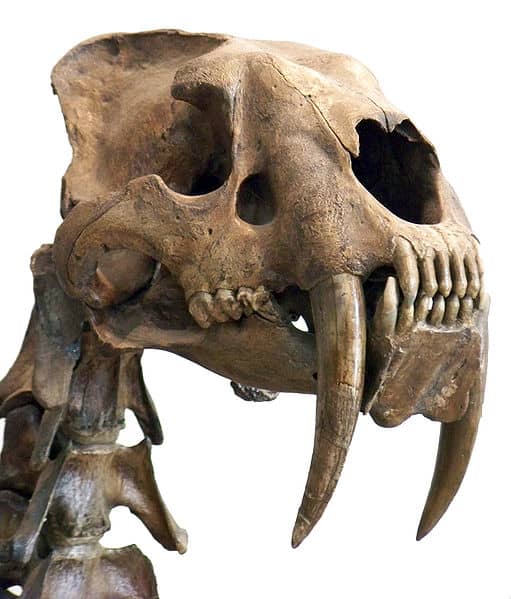Ancient Predators Lured into “Cave of Death”
OutdoorHub Reporters 05.02.13

A mysterious cave near Madrid, Spain contains a large number of fossilized bones, most in very good condition for being millions of years old. It was previously thought that the remains were caused by some sort of natural disaster or even the result of flooding from other caves. A recent study proposes that the animals, many of which were prehistoric predators, entered the cave freely in the search for food. The first animals that entered the cave were unable to leave and their carcasses lured other predators, who were able to have one last meal before finding themselves also trapped.
According to the study, the site was discovered in 1991 and is a trove of fossilized remains. So far over 18,000 fossils were unearthed from the area, including those of saber-toothed cats, bear dogs, and ancient variants of modern rhinos and hippos. The cave had a single upper outlet which while accessible from the outside, trapped animals that could not reach it to come back out. Scientists also found evidence that predators trapped inside the cave made temporary dens, leading some to speculate that at least some of the animals survived for a length of time inside the cave. The scarcity of herbivore remains in the cave indicate that the entrance was visible and generally avoided by other animals.
Researchers believe the enclosed atmosphere of the cave helped preserve the fossils in their excellent state today. Two species of the saber-toothed tiger are found predominately throughout the cave. Marks on the bones suggest that at times more than one predator existed in the enclosure, but these short-lived companionships often ended logically with the death of one of the animals before the other succumbed to hunger.

